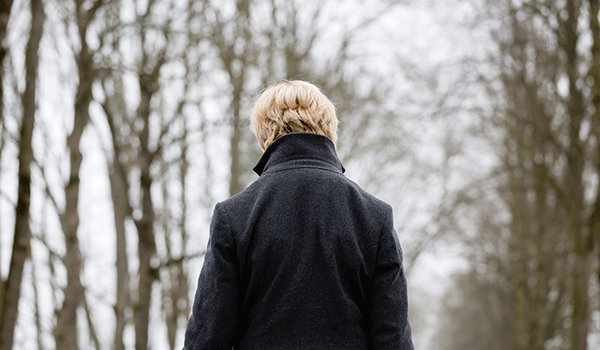
Daylight savings time is over and we are back to the sky being dark before 6 pm, and having to cope with less sunlight. In a year that has felt terribly dreary and tiring, perhaps this is affecting your mood and overall outlook more than you realize. Add in changes in school patterns, news of a spike in COVID-19 cases and an overall feeling of uncertainty may play into your overwhelm as well. Seasonal Affective Disorder (SAD) is a type of depression that sees a significant uptick during the fall months, through winter.
If you feel you’ve become moodier, have less energy, and are not motivated to do any work – to the point where it is impairing your ability to function like you normally do, it is helpful to speak with a doctor about what you’re experiencing.
These symptoms are related to seasonal affective disorder. This is not something you “tough out”. It is a bonafide health condition that requires treatment.
How To Cope With Less Sunlight During A Difficult Time
Seasonal affective disorder (SAD) is a condition that affects 3 million Americans yearly.
As we mentioned before, for most people, symptoms begin to show up around fall each year when we begin to experience shorter days. The symptoms will subside when we enter spring – the time of the year when we begin to see longer days again.
Here’s how to tell if you or a person you love has SAD.
Signs and symptoms of seasonal affective disorder
The signs and symptoms of seasonal affective disorder are similar to those for depression. Thus you may notice:
- Reduced energy levels, tiredness/fatigue
- Decreased motivation to perform your daily activities or activities you enjoy
- Increased sleep
- In some cases a lack of sleep/insomnia
- Changes in your appetite
- Sudden weight loss or gain
- Experiencing feelings of hopelessness, worthlessness, or guilt
- Suicidal ideations
If you or someone you love experiences a combination of these symptoms over a period of two weeks or more, it is likely SAD is at play. If you’ve noticed that these symptoms come on during the months where we experience shorter days, it is very likely you’re experiencing SAD.
It is important to talk with your primary care physician immediately.
Treatment for SAD
Because SAD is a type of depression, doctors might prescribe antidepressants. Because different antidepressants have interactions with other medications, it is important that you take the medicines that are prescribed specifically for you. Do not take somebody else’s antidepressants.
Your mental health medical professional may also prescribe Vitamin D. The sun is our best source of Vitamin D, a vitamin that helps your body to absorb calcium and thus which is necessary for healthy bones and teeth. Vitamin D also plays a role in reducing your risk of hypertension, osteoporosis, cancer, and autoimmune disease.
With less sunlight during the fall and winter months, we get less Vitamin D and these could impact the hormone balance in your body. In a difficult year like this one, it will also help to speak with a mental health professional, trained in psychotherapy.
Therapy gives you tools beyond your medication and also allows professionals to determine if your prescribed medications are helping. Many health insurance plans will cover these mental health costs; so use them to help you get better.
Light bulb therapy is another type of treatment your mental health medical professional could prescribe. During light therapy, you will sit or work near a device called a light therapy box. The box gives off a bright light which mimics natural outdoor light.
Researchers think light therapy affects the brain chemicals that control mood and sleep.
What else can you do to combat Seasonal Affective Disorder?
Apart from seeking medical help, which we highly recommend, what else can you do to combat depression around this time of the year?
Here are a few of our suggestions.
- Take a daily walk outside while the sun is still out. If you can manage it, even 30 minutes outside will help boost your Vitamin D levels, expose you to sunlight, and ultimately will help produce those brain chemicals that will reduce the symptoms of SAD.
- If you are unable to see family and friends this year due to COVID-19, plan to have Zoom and Skype sessions with your family to celebrate the holidays. Have virtual cook-ins and virtual dinners to take the edge off the loneliness. Virtual dinners are not the same as the real ones but they are still a powerful way to connect with those you love.
- If there are depression support groups in your locality, this could be a good way to connect with others going through what you are experiencing to get support.

